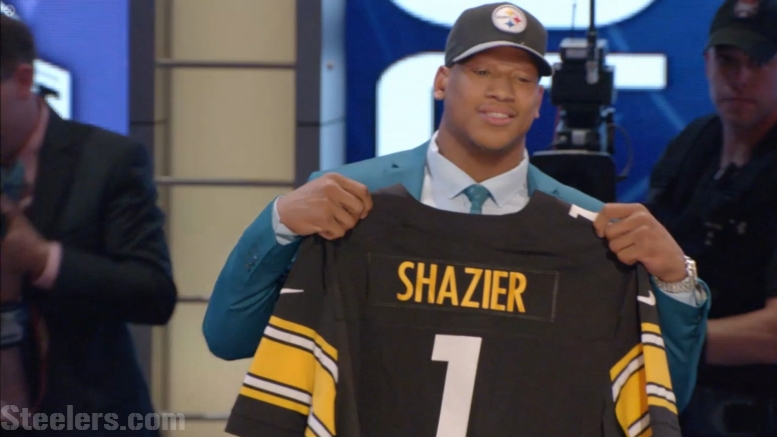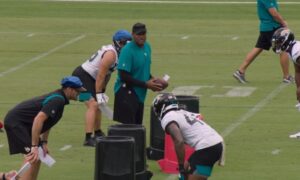Even when he is making a good point, Mike Florio still manages to be annoying. There are certain topics that are in his wheelhouse when it comes to Pro Football Talk, but he often goes about it in a way that can easily be taken as obnoxious.
That was exactly what he did last week when he seized upon Pittsburgh Steelers inside linebacker Ryan Shazier’s comments about wanting to revisit the nature of rookie first-round pick contracts in the next Collective Bargaining agreement, which will not be due for renegotiation for a few years yet.
Shazier made the point that because first-round picks are beholden to a fifth-year club option, that gives teams more control over the player than other draft picks, and we see that being born out this offseason, in which the player the team took in the second round after him, Stephon Tuitt, is due for an extension.
He will have to wait another year. While he is technically eligible for an extension, it is exceedingly rare for any team in any context, barring franchise quarterbacks, offer a player an extension with two or more years left on his contract.
The Steelers found a workaround for this with Antonio Brown in the past two years by forwarding him additional money accelerated from the final year of his deal that would be negated by a new deal. But in the meantime, we see former first-rounders in Shazier’s position, from his class, like Odell Beckham, Jr. and Aaron Donald, pushing now for new deals.
That wasn’t good enough for Florio, who spent an article lecturing the Ohio State product about which labor issues he should care about. He noted that he will be beyond his rookie deal by the time a new CBA would be in place, so he shouldn’t care, because reasons.
Instead, he should be focusing on a rise in the cap floor. Teams are permitted to spend as low as 89 percent of their salary cap over a four-year cycle, meaning that they can pocket (in terms of cap savings) 11 percent per year.
This year’s salary cap his $167 million. Projecting a very conservative $5 million annual rise, over the next four years, teams will have $698 million in cap space. Let’s make it an even $700 million for simplicity’s sake.
With the cap floor in place at its current rate, that would allow teams not inclined to spend money to shave off $77 million in cap spending over those four years, which is $77 million that could be going toward compensating the more than 2000 players in the league annually.
As I said, it’s a good point that Florio makes when it comes to pending labor negotiations, but that’s certainly an annoying way to go about making the point.








